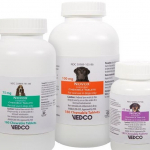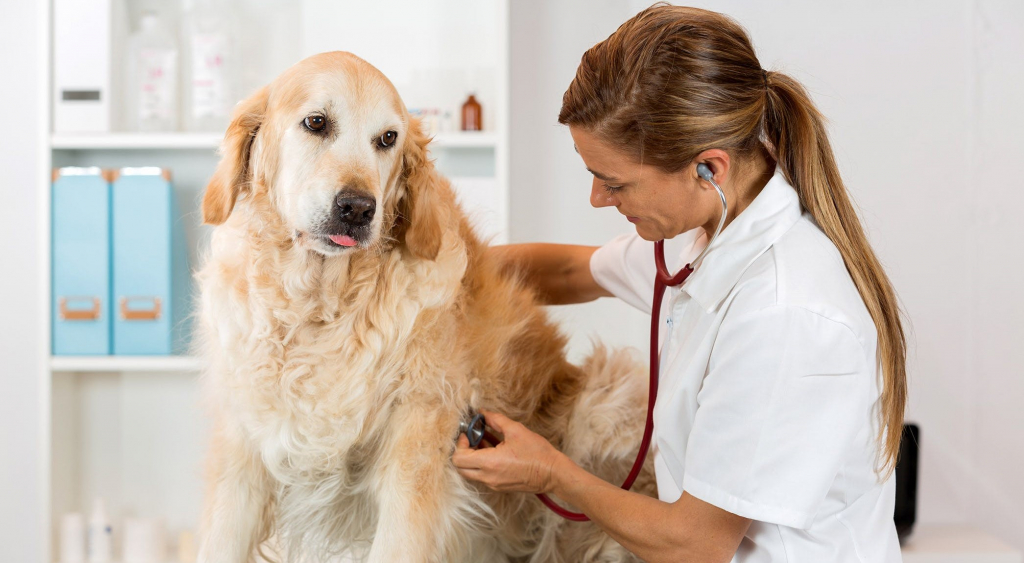What is Novox?

Novox is prescribed for pain relief and inflammation that is related to osteoarthritis. It is also used to control postoperative pain in dogs that is linked to soft tissue and orthopedic surgery and is utilized for symptomatic treatment of discomfort in dogs.
It does not cure anything, but rater alleviates pain, inflammation, and fever. Veterinarians will also need to diagnose all symptoms, and treat the underlying cause.
Research has indicated that Novox may also be used to control cancer pain in dogs. [2] A recent study demonstrates that Carprofen,an NSAID, has been shown as effective at providing pre-emptive analgesia in dogs undergoing tibial plateau leveling osteotomy and ovariohysterectomy.
Novox is selective for the cyclooxygenase-2 isoform, which is primarily responsible for inflammation. Total drug exposure is the same after a single dose as at steady state.
It can also be used to reduce fever in dogs and is similar in chemical structure to Rimadyl, Norocarp, Vetprofen, and Carpaquin. Although initially manufactured for human use during the 1990’s, it was adapted for canines and is FDA approved.
What is Novox used for in dogs?
Novox is not a cure but instead helps manage pain for quite a few conditions. We’ll have a look at a few of them here.
Degenerative joint disease
Osteoarthritis (degenerative joint disease) in dogs is extremely painful! It is caused by the inflammation, breakdown, and the disintegration of articular cartilage that covers the ends of the bones in the joint.
As dogs age, the water content in their joints increase, and the cartilage degenerates because the protein makeup of the cartilage decreases.
With this comes swelling, and increased joint pain. As the cartilage degenerates, it forms flakes and crevices. When there is an advanced loss of articular cartilage, the ends of the bones in the joint are stripped of cartilage, resulting in the disappearance of the protective cushion.
This causes the bones to rub against each other, creating more damage, and more pain to the dog. Degenerative joint disease is also a common result of hip or elbow dysplasia.
Watch Dr. Anthony Cambrige explain hip dysplasia in dogs:
Veterinary treatments will usually include the use of non-steroidal anti-inflammatory medications like Novox to reduce inflammation and pain. There are also surgical options like joint fusion, a replacement, amputation or cutting of the joint.
Novox increases mobility in dogs and helps them to lead a pain-free and healthy life. Since measuring pain in dogs is difficult, veterinarians will surmise behavioral changes in dogs after being medicated with Novox.
Inflammation & pain
Tissue inflammation in dogs means pain for your pup. The body responds to injury or infection by means of inflammation which helps the immune system fight off bacteria.
Signs of inflammation include:
- redness
- heat
- pain
- swelling
- loss of function.
When the inflammation is severe, it leads to harsh adverse effects on the body. In these cases, veterinarians will prescribe anti-inflammatory, non-steroidal drugs like Novox to reduce or limit inflammation. These meds should relieve pain and inflammation in dogs without the immuno-suppressive and metabolic side effects that cortico-steroids have.
Non-steroidal anti-inflammatory drugs like Novox lessen the amount of prostaglandin produced in the body. The analgesic effects of Novox is stronger than aspirin or phenylbutazone for relieving pain in dogs and is often prescribed for dogs recovering from:
- a surgical procedure
- and for arthritis, hip and elbow dysplasia
- and other discomforts that respond to Novox.
COX-2 inhibitor
With the use of Novox, the production of specific enzymes that lead to tissue inflammation (COX-2) and other sources of inflammatory prostaglandins, are inhibited. (Prostaglandin is a hormone that is involved in muscle contraction.) Novox does not interfere with COX-1 activity.
Fever
Fever in dogs may indicate the following interference in the body:
- infection
- inflammation
- cancer
- or immune-mediated disease.
Veterinarians will determine the cause of the fever by obtaining the dog’s history, a physical examination, and some lab tests or other diagnostic tests.
Sometimes the origin of a fever cannot be found, and dogs may benefit from the use of fever-reducing medications like Novox. If a temperature is left unchecked, it could lead to an array of complications such as:
- loss of appetite
- lethargy
- and dehydration.
Novox is similar to indomethacin for its antipyretic effects. Additionally, Novox is a better option than aspirin and phenylbutazone for the lowering of fever in dogs.
Canine cancer patients
Note: May present side effects, see below.
These days, canine cancer is unfortunately quite common in dogs; with over 45% of dogs that are ten years of age dying of cancer or being euthanized because of the disease.
To date, no studies have described the incidence of cancer pain in veterinary patients; in non-oncologic outpatient veterinary patients the prevalence of discomfort in dogs has been reported at 20% and, of those, 17% had the pain for more than one month in duration.
Cancer pain may be attributed to:
- tissue sensitization
- increased production of inflammatory mediators by the tumor
- localized tissue acidosis
- altered pain modulation
- and nerve compression.
Non-steroidal anti-inflammatory drug therapy, with or without non-opioid adjuvant modalities, constitutes the first step in addressing cancer pain in humans on the WHO cancer pain ladder. Non-steroidal anti-inflammatory drugs (NSAIDs) also produce both peripheral and central effects.
According to a recent study the side effects of NSAIDs like Novox usually show up as the following conditions:
- gastrointestinal tract ulcerations
- renal damage
- hepatopathy
- inhibition of platelet function.
The study concludes that NSAIDs may be contraindicated in some canine patients with a co-existing disease, making it necessary to consider alternative medications.
What your vet should know

Before your veterinarian prescribes Novox it is necessary to discuss what other medications, vitamins and supplements your dog is taking. Your veterinarian may test for liver or kidney disease or damage prior to prescribing Novox.
If your dog from either of these organ diseases, it will affect the way that Novox is metabolized in his body.
Dogs that suffer from other health conditions like Von Willebrand’s disease, [5] diabetes and dehydration are usually not prescribed Novox. Additionally, lactating and pregnant dogs should not take it. Dogs that are used for breeding purposes should also not take Novox.
Basically you need to communicate all of the above and whatever else you feel necessary to your veterinarian during the initial visit. The more info they have the better.
General side effects

Toxicity of the medication also presents as some of these symptoms, so it’s vital to keep impeccable records as to how you medicate your dog. A study demonstrated that the side effects of Novox use in canines included some of the symptoms listed below:
- vomiting
- diarrhea
- anorexia
- lethargy
- melena (gastrointestinal bleeding)
- fecal blood
- bleeding.
Additional adverse effects may include:
- abdominal pain
- aggressiveness or behavior change
- hyper salivation
- polydipsia (excessive thirst)
- polyuria (excessive urination)
- constipation
- icterus (jaundice)
- skin reactions
- weight loss.
We probably don’t even have to tell you this, but please keep an eye out for these and monitor them as needed; your dog is going through a lot of pain, the medication is designed to help them manage it, but should something not go as planned, you must take action sooner rather than later.
Novox for dogs dosage

The good new is that Novox is available in a flavorful liver chewable tablet. But overall it is available in three forms:
- pill
- chewable tablet
- or injection.
It is important to follow the exact dosage prescribed by your veterinarian as Novox can induce serious side effects. It is available in 25mg, 75mg, and 100mg scored tablets and is usually administered as follows:
- 1 mg/lbs. (2.2mg/kg) twice daily
- or 2 mg/lbs. (4.4 mg/kg) once a day.
The injectable medication is administered according to the following:
- 1.8 mg/lbs (4mg/kg) intravenously as first dose, then 1 mg/lbs
- 2.2 mg/kg orally, intravenously, subcutaneously or intramuscularly
Your veterinarian will decide on the duration of therapy according to the clinical condition of the dog.
For the relief of postoperative pain, it is typically administered approximately 2 hours before surgery. The lowest effective dose for the shortest duration consistent with an individual response is typically used.
What to do about missed doses of Novox?
If your dog has missed a dose of Novox, it’s always best to consult with your veterinarian for advice. If you remember the missed dose, and it’s close to the next dosing schedule, wait until the following dosage schedule, and leave it as a missed dose. Do not double up on the dosage.
Novox overdose in dogs
Ingestion of toxic amounts of Novox can result in acute kidney failure, as well as severe gastric ulceration.
Signs of toxicity need immediate veterinary assistance, and you should get your dog to the animal ER as soon as the following symptoms present:
- bloody vomiting
- chronic diarrhea
- black and tarry stool
- prolonged loss of appetite
- unusual lethargy
- increase in urination and thirst
- general malaise
- abdominal pain
- seizures.
If the overdose is not attended to in a timely fashion, the probability of the death of your pet is high. For the sake of all that is good, do all you can to prevent it from getting to that point.
Interaction with other drugs
Some steroids cannot be used together with Novox. These include:
- Prednisone
- Triamcinolone
- and Dexamethasone.
Aspirin, meloxicam, and etodolac may increase any potential for dangerous side-effects, and also enhance the potentiate of the Novox.
Final thoughts on medicating your dog with Novox

We all want our furry best friends to be pain-free, and disorders of the musculo-skeletal system in dogs most often will affect your dog’s ability to move, and to live a normal life. Novox (a.k.a Carprofen) provides effective relief from:
- pain
- inflammation
- osteoarthritis
- post-surgical pain
- and fever in dogs.
Important note: Many drugs are capable of crossing the placenta and affecting the fetus, and you should always inform your vet if your dog is pregnant or lactating dogs.
It is vital to use Novox as directed by your veterinarian and never share the medication among other household pets.
